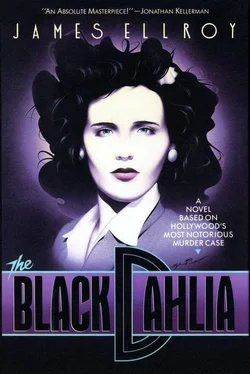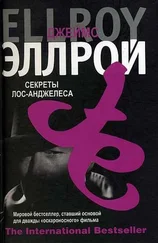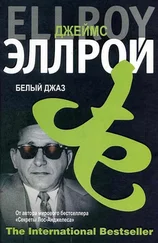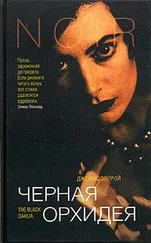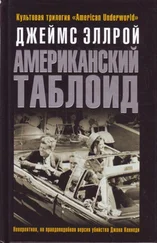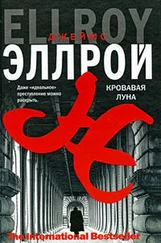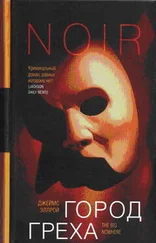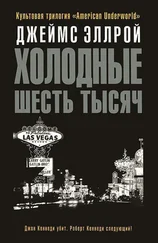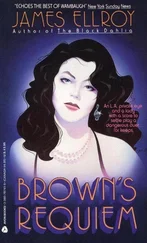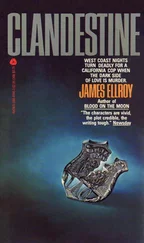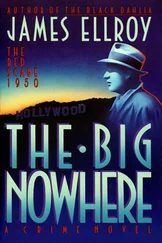“At least he looks good with his shirt off.”
I turned to face the words. Kay Lake was staring at me; out of the corner of my eye I saw Blanchard, resting on his stool, staring at us. “Where’s your sketch pad?” I asked.
Kay waved at Blanchard; he blew her a kiss with two gloved hands. The bell rang, and he and his partner moved toward each other popping jabs. “I gave that up,” Kay said. “I wasn’t very good, so I changed my major.”
“To what?”
“To pre-med, then psychology, then English lit, then history.”
“I like a woman who knows what she wants.”
Kay smiled. “So do I, but I don’t know any. What do you want?”
I eyeballed the gym. Thirty or forty spectators were seated in folding chairs around the center ring, most of them off-duty cops and reporters, most of them smoking. A dissipating haze hung over the ring, and the spotlight shining down from the ceiling gave it a sulfurous glow. All eyes were on Blanchard and his punchy, and all the shouts and catcalls were for him — but without me getting ready to avenge old business none of it meant a thing. “I’m part of this. That’s what I want.”
Kay shook her head. “You quit boxing five years ago. It’s not your life anymore.”
The woman’s aggressiveness was making me itchy. I blurted, “And your boyfriend’s a never-was just like me, and you were some sort of gang skirt before he picked you up. You—”
Kay Lake stopped me by laughing. “Have you been reading my press clippings?”
“No. You been reading mine?”
“Yes.”
I didn’t have a retort for that. “Why’d Lee quit fighting? Why’d he join the Department?”
“Catching criminals gives him a sense of order. Do you have a girlfriend?”
“I’m saving myself for Rita Hayworth. Do you flirt with a lot of cops, or am I a special case?”
Shouts rose from the crowd. I glanced over and saw Blanchard’s sparring partner hit the canvas. Johnny Vogel climbed into the ring and popped out his mouthpiece; the punchy expelled a long jet of blood. When I turned to Kay she was pale, hunching into her Ike jacket. I said, “Tomorrow night’ll be worse. You should stay home.”
Kay shuddered. “No. It’s a big moment for Lee.”
“He told you to come?”
“No. He would never do that.”
“The sensitive type, huh?”
Kay dug in her pockets for cigarettes and matches, then lit up. “Yes. Like you, but without the chip on the shoulder.”
I felt myself go red. “You’re always there for each other? thick and thin and all that?”
“We try.”
“Then why aren’t you married? Shacking’s against the regs, and if the brass decided to get snotty they could nail Lee for it.”
Kay blew rings at the floor, then looked up at me. “We can’t.”
“Why not? You’ve been shacked for years. He quit fighting smokers for you. He lets you flirt with other men. Sounds like an ace deal to me.”
More shouts echoed. Glancing sidelong, I saw Blanchard pounding a new punchy. I countered the shots, duking the stale gym air. After a few seconds I saw what I was doing and stopped. Kay flipped her cigarette in the direction of the ring and said, “I have to go now. Good luck, Dwight.”
Only the old man called me that. “You didn’t answer my question.”
Kay said, “Lee and I don’t sleep together,” then walked away before I could do anything but stare.
I hung around the gym for another hour or so. Toward dusk, reporters and cameramen started arriving, making straight for center ring, Blanchard and his boring knockdowns of glass-chinned pugs. Kay Lake’s exit line stayed with me, along with flashes of her laughing and smiling and turning sad at the drop of a hat. When I heard a newshound yell, “Hey! There’s Bleichert!” I exited, running out to the parking lot and my twice-mortgaged Chevy. Pulling away, I realized I had no place to go and nothing I wanted to do except satisfy my curiosity about a woman who was coming on like gangbusters and a big load of grief.
So I drove downtown to read her press clippings.
The clerk at the Herald morgue, impressed with my badge, led me to a reading table. I told him I was interested in the Boulevard-Citizens bank robbery and the trial of the captured robber, and that I thought the date was sometime early in ’39 for the heist, maybe fall of the same year for the legal proceedings. He left me sitting there and returned ten minutes later with two large, leather-bound scrapbooks. Newspaper pages were glued to heavy black cardboard sheets, arranged chronologically, and I flipped from February 1 to February 12 before I found what I wanted.
On February 11, 1939, a four-man gang hijacked an armored car on a quiet Hollywood side street. Using a downed motorcycle as a diversion, the robbers overpowered the guard who left the car to investigate the accident. Putting a knife to his throat, they forced the other two guards still inside the car to let them in. Once inside, they chloroformed and trussed all three men and substituted six bags filled with phone book scraps and slugs for six bags filled with cash.
One robber drove the armored car to downtown Hollywood; the other three changed into uniforms identical to the ones the guards wore. The three in uniform walked in the door of Boulevard-Citizens Savings & Loan on Yucca and Ivar, carrying the sacks of paper and slugs, and the manager opened the vault for them. One of the robbers sapped the manager, the other two grabbed sacks of real money and headed for the door. By this time, the driver had entered the bank, and had rounded up the tellers. He herded them into the vault and sapped them, then shut the door and locked it. All four robbers were back on the sidewalk when a Hollywood Division patrol car, alerted by a bank-to-station alarm, arrived. The officers ordered the heisters to halt; they opened fire; the cops fired back. Two robbers were killed and two escaped — with four bags filled with unmarked fifties and C-notes.
When I saw no mention of Blanchard or Kay Lake, I skimmed a week of page one and two accounts of the LAPD investigation.
The dead heisters were identified as Chick Geyer and Max Ottens, San Francisco muscle with no known LA associates. Eyeball witnesses at the bank could not identify the two escapers from mug shots or provide adequate descriptions of them — their guard hats were pulled low and both wore lacquered sunglasses. There were no witnesses at the hijack scene, and the chloroformed guards had been overpowered before they got good looks at their attackers.
The heist went from page two and three to the scandal columns. Bevo Means featured it for three days running, milking the angle that the Bugsy Siegel mob was chasing the escaped heisters because one of the armored car’s stops was the Bug Man’s haberdashery front. Siegel had sworn to find them, even though it was the bank’s money that the two got away with — not his.
Means’ columns got further and further afield, and I turned pages until I hit the February 28 headline: “Tip From Ex-Boxer Cop Cracks Bloody Bank Robbery.”
The account was loaded with praise for Mr. Fire, but was short on facts. Officer Leland C. Blanchard, 25, a Los Angeles policeman attached to Central Division and a former “popular fixture” at the Hollywood Legion Stadium, questioned his “fight game acquaintances” and “informants” and got tips that Robert “Bobby” De Witt was the brains behind the Boulevard-Citizens job. Blanchard relayed the tip to Hollywood Division detectives, and they raided De Witt’s Venice Beach house. They found stashes of marijuana, guard uniforms and money bags from Boulevard-Citizens Savings & Loan. De Witt protested his innocence, and was arrested and charged with two counts of Armed Robbery One, five counts of Aggravated Assault, one count of Grand Theft Auto, and one count of Harboring Felonious Drugs. He was held without bail — and there was still no mention of Kay Lake.
Читать дальше
